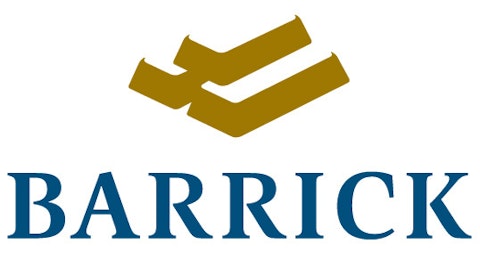While the deal reached over the weekend to restructure the critical debt situation in Cyprus has been met with wildly disparate opinions from across the eurozone, it’s creating new standards that will affect both EU countries and the global economy. As is so often the case when considering the global macroeconomic results of a situation like this one, the results are working to create competing forces within certain markets. Precious metals, including gold and silver, tend to be bolstered by weak economic conditions. Conversely, however, the turmoil in Europe is positive for the U.S. dollar — this is ultimately bearish for metals. Understanding these forces is critical to being properly positioned as the situation continues to unfold.

The deal itself
To keep Cyprus from going under, seeing major banks fail, and forcing the country to potentially withdraw from the EU, a deal has been reached by which 10 billion euros will be directed to backstop losses. As a part of the rescue, Laiki Bank, the second largest bank in Cyprus, will be would down. While deposits under 100,000 euros will be protected, large depositors stand to lose significant funds. This was a necessary provision of the deal and ultimately helped push it past key decision-makers.
Many of these are Russian, which has led to stark criticism from the Russian prime minister, who referred to the measure as “stealing.” This stance didn’t stop President Vladimir Putin from working to restructure a $3.2 billion loan made to Cyprus in 2011. Putin, who could probably write a personal check to cover the full amount, is pushing to stabilize the situation.
The European trickle down
While many European officials see the bailout as a critical measure, it doesn’t come without certain conditions that will affect how the EU addresses similar situations going forward. The first new standing edict is the bailout/bail-in concept: No longer will the banks of any nation receive a bailout without having the depositors of those banks feel a good measure of the pain. Secondly, and along those same lines, is the EU will no longer tolerate so-called “casino economies,” meaning those in which the banking sector eclipses the nation’s GDP and leaves the entire system imperiled when problems emerge.
The fallout
While in a very real way, the bailout should serve as a stabilizer for the EU economy, both by ensuring the solvency of Cyprus and by protecting the integrity of the EU itself, some economists see it as further undermining long-term stability. Given the provision that will require large depositors to bear some of the pain if the bank fails, it makes it probable that private capital will avoid troubled institutions and times when they need help most. Furthermore, the entire situation serves as a continuing cautionary tale for the stability of the EU economy, one reason the euro dropped shortly after the deal was made public.
Competing forces
The existence of any global economic crisis tends to be a bullish factor for gold. As investors scramble for safety in tangible assets, like gold, both the physical commodity and paper gold, like the SPDR Gold Trust (ETF) (NYSEMKT:GLD), tend to see upward pricing pressure from the flight to safety or risk-off trade. The resolution of such a crisis is, therefore, a bearish force on gold and silver prices as the flight to safety is reversed. Within this limited view, the resolution of the situation in Cyprus is bearish.
Also likely to drive down commodity prices is a strong U.S. dollar. When the dollar is strong, U.S. dollar-denominated assets are more attractive and represent a safe haven of their own. The initial reaction to the bailout was to strengthen the euro, making gold more attractive, but this quickly reversed course. As the euro weakened and the dollar strengthened, this could be seen as a negative for metals.
On a longer-term basis, however, continued weakness in Europe will mean a lack of stability on the global economy. This is a bullish factor that will directly conflict with the bearish factors I’ve mentioned. The lingering concerns over the EU’s future mean that there will be some flight to safety. Ultimately, while the resolution is a near-term negative for gold and silver, over the medium term, precious metals may benefit.
Ways to play
In addition to a straight allocation to the SPDR Gold Trust (ETF) (NYSEMKT:GLD), which will offer you the most commodity-like returns, there are some interesting mining plays to consider. While Barrick Gold Corporation (USA) (NYSE:ABX) reported a loss for the most recent quarter, largely on increasing costs and environment concerns, CEO Jamie Sokalsky continues to push for changes in how the industry operates. As these are affected, Barrick Gold Corporation (USA) (NYSE:ABX) looks to be well positioned.
In addition to major gold miners like Barrick Gold Corporation (USA) (NYSE:ABX), Hecla Mining Company (NYSE:HL) looks interesting at current levels. The company operates in both the precious- and base-metal segments and may provide you with a more diversified revenue stream. While Hecla Mining Company (NYSE:HL) has a high multiple, it offers a way to get diversified exposure that may prove rewarding.
The article Will Cyprus Affect Your Precious-Metals Portfolio? originally appeared on Fool.com and is written by Doug Ehrman.
Fool contributor Doug Ehrman and The Motley Fool have no position in any of the stocks mentioned.
Copyright © 1995 – 2013 The Motley Fool, LLC. All rights reserved. The Motley Fool has a disclosure policy.


